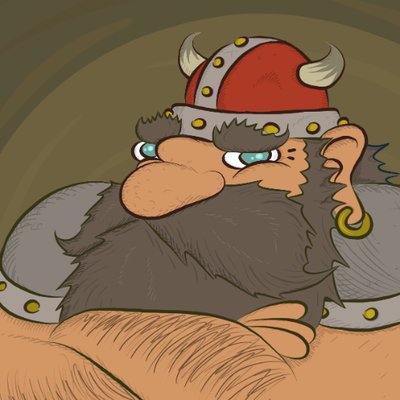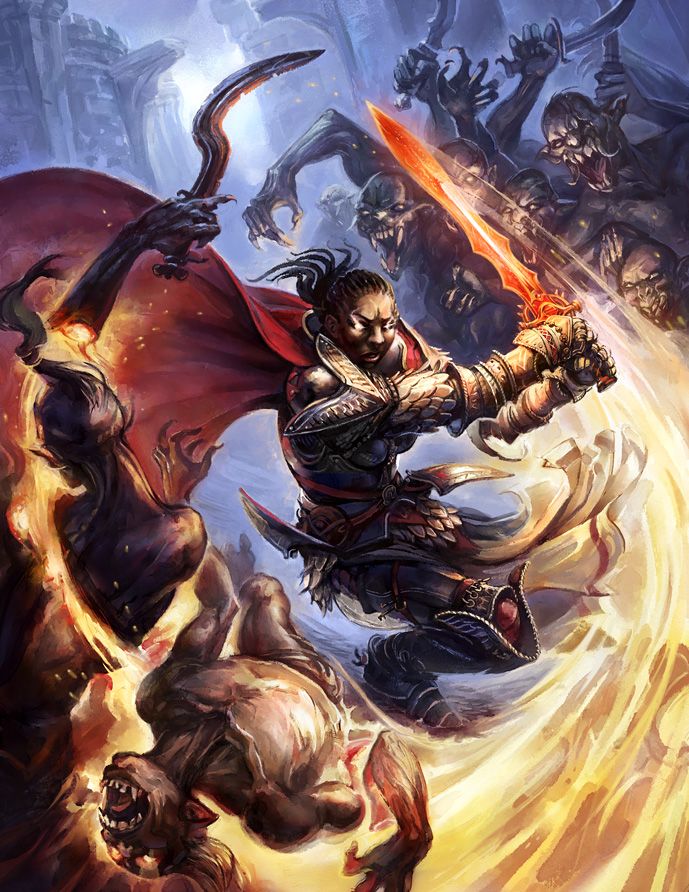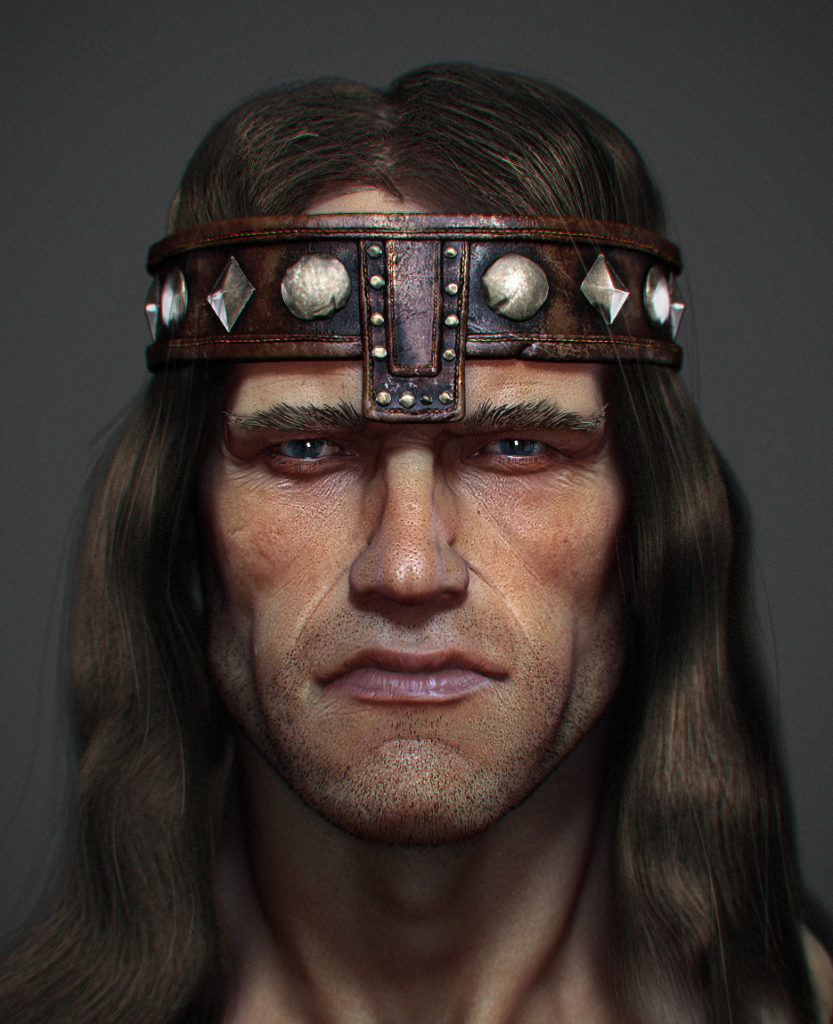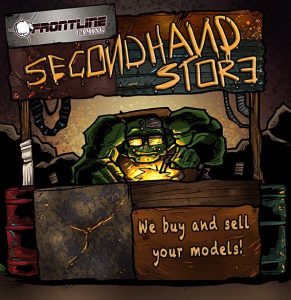A lot of Dungeon Masters struggle to get their players to care about, or be a part of, the campaigns they create. But there’s one simple way to get them hooked into things, and it’s probably easier than you think.

What’s The Problem?
It’s a perpetual crisis for DMs- you write up a cool and interesting campaign. You hide a million little secrets and hints in it for your players to discover. You populate it with dastardly villains and heroic allies. You scatter plots and intrigue hither and yon. You give them challenging and unique encounters to best in their travels. Every nook and corner of your world is filled with cool stuff.
But when your actual players sit down at the table, they’re somehow bored. They say there’s nothing to do, or they look aimlessly across the gaming table when you ask them where they want to go next, or they simply bounce off your NPCs and leave all of their mysteries unexplored. There’s a thousand thousand plot hooks behind every single goblin and somehow they have the audacity to be bored! What is wrong with them??
Well, maybe there’s nothing wrong with your players at all, nor is there a problem with your game world. Maybe the problem is that the players aren’t a part of your game world.
Think about it: when you wrote all of those exciting NPCs and wonderful story hooks, who were they for? Were they for you, and about things you found interesting, or were you thinking about your players when you wrote them? It’s a very common trap of being a DM to write an adventure for yourself rather than for your players, and it’s one that even experienced DMs can fall into. Obviously there’s nothing wrong with writing about things that excite you- that’s just good writing practice there- but it’s equally important to keep your players in mind when designing an adventure, because roleplaying is a shared experience and the best way to ensure everyone at the table is having a good time is to make sure there is something in the game for everyone.

A Time For Every Purpose
So how do you do that? How do you make sure that everyone at the table is hooked into the game? Well, the first step to this is to pause and think about what your players want. If you’ve been with the same group for a while, you probably have at least some intuitions about the sorts of things they like to do in a game. Maybe you have one player who just wants to go wild and smash stuff with their axe, in or out of combat. Maybe you have another who wants to play a tragic and mournful character with a terrible backstory. Maybe you have another who wants to always Do The Right Thing and inevitably plays a paladin or cleric in every single campaign.
Don’t look at this as limiting or a bad thing, though- you can use these proclivities to your advantage by giving these players the opportunity to do the things they like. (That’s the point of playing elfgames, after all.) Put in some obvious evildoers (slave traders, highway bandits, etc) that your Do Gooder can do good on. Give them a sympathetic baddie who can be redeemed with enough convincing. Give them tough moral choices to agonize over. Similarly, give your Tragic Hero someone to regale with their terrible misfortunes, and have more tragic things happen to them in the course of the game. And give Big Smasher things to smash in entertaining ways. In short, give your players what they want.

Fitting the Pieces
More than just that, though, if you want your players to really get into your game, make them a part of it at every level. If someone writes a backstory where they are an exiled prince, have one of their noble relatives show up to complicate things, either as a villain or an ally. If someone is playing an animal-loving ranger, have animals in danger that must be saved. If someone is playing a clever magical researcher, give them lost libraries to find and eldritch secrets to unlock.
But this can go beyond simple backstory and motivation, however; if you want to really make it work for you, give your players problems and encounters that their characters are especially well-suited to solve and that can show off their strengths (or weaknesses.) Indiana Jones doesn’t face generic traps and puzzles when he enters a cursed, ancient ruin- he faces ones that show off his particular combination of intellect and agility. If your party has a muscled barbarian with mighty thews, give them a trap that they can muscle open and demonstrate his strength. If your wizard took the time to learn Passwall, give them some map puzzles that have no answer unless they “cheat” their way through and bypass a section.
And don’t limit yourself to just their backstories, either- as your players make choices during the game, you can incorporate those choices into future sessions. Did they save one of the townsfolk you weren’t expecting them to? Have that person become one of their allies, or maybe even become an adventurer themselves. Anyone they take a special interest in can become an important feature of your game, regardless of what their original role was- after all, it’s your campaign world to shape and the only things that are set in stone are the things you choose to leave that way.
In short, make it so that your game would not be the same without your players. The Harry Potter novels wouldn’t be the same if you replaced Harry himself with someone else; Star Wars without Luke Skywalker is a totally different sort of story. A story should be unique to its protagonists, and roleplaying stories are no different in that way than any other. If you can remove the PCs and replace them with a different set of characters of the same class without any real changes to how things play out, you’re doing a disservice both to them and to yourself as a storyteller.
The End
None of this means that you shouldn’t write a campaign that is exclusively focused on your players- it is just as important for you, as the DM, to be having fun as well; if you’re not, the game is failing in its purpose just as surely as if one of the players were not enjoying it. The goal of each session should be to try and engage everyone at the game table, and doing that successfully often means looking at what each of those people want from the game and what they will enjoy. Think about your campaign not just as a world that you are crafting, but as a story for people to become involved with and enjoy. Make your players part of your game rather than just being present for it and I think you’ll find it infinitely more rewarding for everyone at the table.
Remember that you can get your gaming supplies at great discounts every day from the Frontline Gaming store, whether you’re looking for a new set of books or minis for your next encounter.


